New Book Release
I’ve just released another book this past Wednesday: Fea, the Spanish translation of Ugly. Here’s the cover:
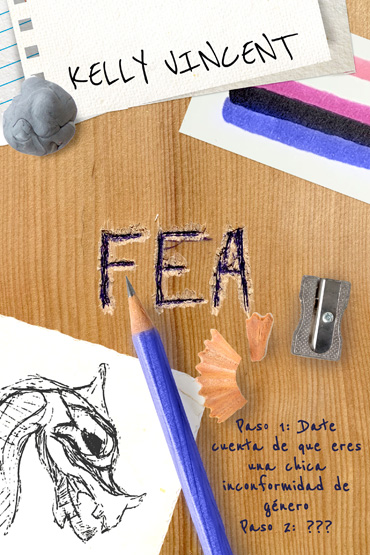
Obviously it’s just the Ugly cover with the carving swapped out and the tagline at the bottom translated (and way longer than the English version).
The book is available pretty much everywhere, like my others (Amazon, Barnes and Noble, Apple, Google Play, and Kobo, and you can order it at your local indie shop). See my landing page for links to all the places you can buy it and the book page here for more details.
Translation Experiment
This translation thing is kind of an experiment. Several writers I know do get translations of their books and they actually seem reasonably well with no marketing. (Nobody knows how to market in a foreign language they don’t speak.) One writer said people just find them. I think this makes sense because the problem of discoverability that I’ve been dealing with is partially a result of the explosion in self-publishing—which while not exclusively in English books, is predominantly English work. Other languages aren’t overloaded with so many books to choose from.
So the chance of coming up in a search that someone is making on Amazon or wherever is simply much higher. I decided to start with Ugly because of the timeliness of the subject matter. Although it’s probably much more of a current event in the U.S., I am sure that some of the other progressive places in Latin America (plus Spain) have people questioning their gender identities and exploring those ideas. I suspect there aren’t very many such books out there, so I’m curious to see what happens.
Finding a Spanish Translator
Finding a translator was interesting. First, I needed a literary translator, not someone used to doing marketing copy. When I started searching for translators, most do business work and the first literary ones were so expensive—like in the range of $7000 for my 90,000 word (about 400 page) book. I could not justify that kind of expense. After some more searching, I decided to try Upwork. I put together a project and a max budget and got a lot of bids right at my max budget, naturally. But then I got one from a translator living in Bolivia that was hugely lower than my max.
Too Good to Be True
At first I thought a couple things: this was probably too good to be true, and if it is legit it might not even be ethical. I thought about the ethical aspect and decided that because cost of living is much lower in Bolivia, it makes sense that she doesn’t need as much money to make the project worth her time, which is obviously different for people living in the U.S. or other expensive countries. She set her rate. So I think it’s okay.
Too Good to Be True?
But I still wondered if it was too good to be true. So I asked her to translate the first few chapters, slightly less than 10% of the book, and I’d pay her 10% of the fee and then have a couple people look at it to make sure it’s a good translation of the book in terms of accuracy and tone. My friend Gwen was willing to read it. And in a stroke of luck for me, my house cleaner had once seen some of my books lying around and asked if I was a writer. It turns out that her son is a writer too, and by chance he also is transgender, which made my book an even better fit. She asked him if he’d be willing to read the sample, and he agreed. So that was great.
It's All Good
Both of them said it was a good translation. They noted that it was a little more formal in Spanish, but that that was probably just the nature of the language, which makes sense to me. Like there’s a point where someone calls Nic a “lesbo” and that was simply translated as “lesbiana,” which is the same as “lesbian” would be translated. This formality is also a result of the fact that she translated into what is called Neutral Latin American Spanish, so we avoided country-specific words (which of course also means there’s less slang, because so much of slang is country-specific, in any language). But anyway, she ended up doing the whole book and now it’s out in the world.
What About Italian?
Another possibility is Italian. Supposedly that market is desperate for more books. I have a good Italian friend from my grad school days who works as an English to Italian translator, so I asked her if she’d be interested in translating my book. She doesn’t do literary translation, but has a friend who does. So we’re going back and forth about that. Her rate is much higher (it’s actually in line with what my original budget was for the Upwork project), but this is obviously to be expected because Italy’s much more expensive than Bolivia. But it’s still a decent rate that is be worth trying. I’ve told her I can’t do it now but if she’s still willing to do it in January, I’d be able to do it then. This isn’t finalized, but I’m guessing it will go ahead, so I’m really curious to see how this goes.
Uglier
And during all of this, I’m working on the sequel to Ugly, which is tentatively called Uglier. If the translations do well, I’ll need to get Uglier done, as well. So I’m really curious how all this is going to go.
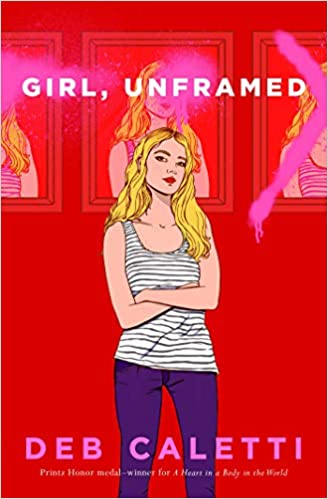 I’m a big fan of Deb Caletti and have reviewed some of her books here (
I’m a big fan of Deb Caletti and have reviewed some of her books here (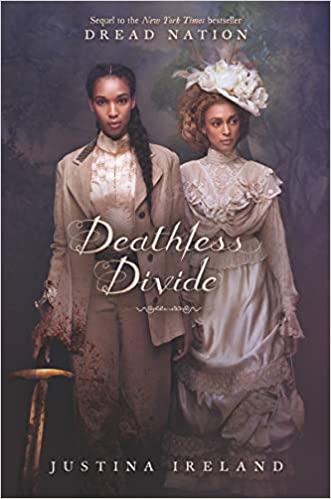 Context
Context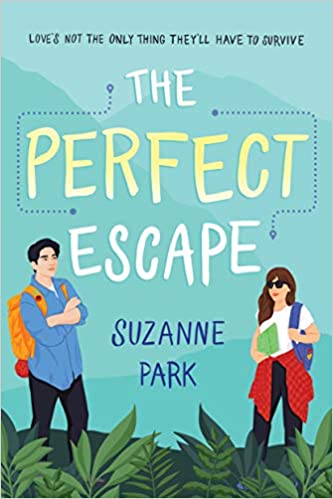
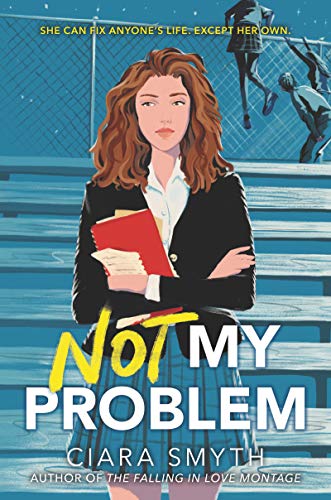
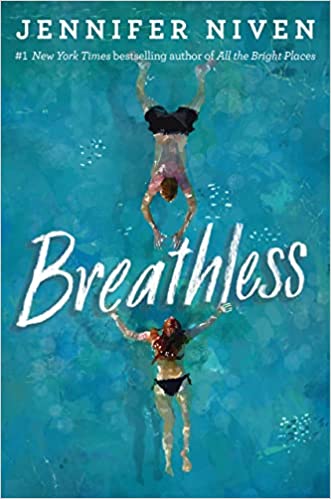 I am a big fan of Niven’s first book (All the Bright Places—it’s one of my favorite books) so I’ve read both her others, including Breathless. One thing that I like about her books overall is that they’re all different. Her first two feature dual perspective, on the girl’s and one the boy’s, but in this one, she sticks with the single protagonist, a girl named Claude who’s just about to graduate high school when the book opens.
I am a big fan of Niven’s first book (All the Bright Places—it’s one of my favorite books) so I’ve read both her others, including Breathless. One thing that I like about her books overall is that they’re all different. Her first two feature dual perspective, on the girl’s and one the boy’s, but in this one, she sticks with the single protagonist, a girl named Claude who’s just about to graduate high school when the book opens.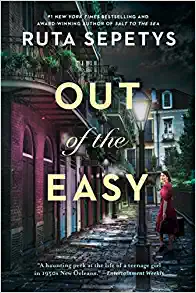 Josie is one of those amazing characters who, like a handful of incredible people I’ve known in real life, wants more out of her life than what she’s been dealt as the daughter of a brothel narcissistic prostitute—and she’s willing to work for it. It’s the 1950s in New Orleans and life is hard for a lot of people. But Josie’s observant and smart (both academically and street-smart), and she has a great deal of self-respect. It’s virtually impossible not to like her and root for her.
Josie is one of those amazing characters who, like a handful of incredible people I’ve known in real life, wants more out of her life than what she’s been dealt as the daughter of a brothel narcissistic prostitute—and she’s willing to work for it. It’s the 1950s in New Orleans and life is hard for a lot of people. But Josie’s observant and smart (both academically and street-smart), and she has a great deal of self-respect. It’s virtually impossible not to like her and root for her.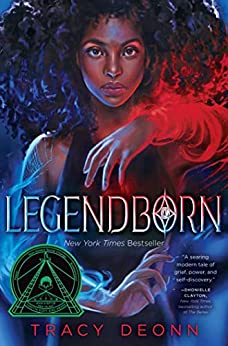 Bree Matthews is a girl with a plan that will help her deal with her mother’s recent death. It also is academically sound and will help her in other ways, even though it will also unexpectedly lead to her getting involved in ancient lore she never knew was real.
Bree Matthews is a girl with a plan that will help her deal with her mother’s recent death. It also is academically sound and will help her in other ways, even though it will also unexpectedly lead to her getting involved in ancient lore she never knew was real.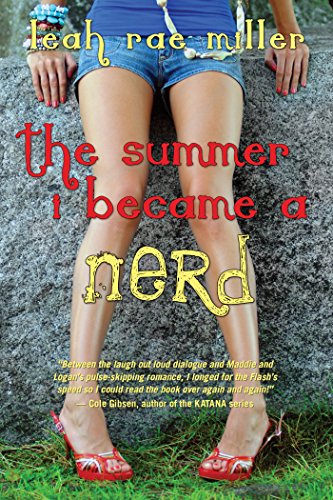 Maddie has several things she’s passionate about, but none of them are the things she’s “supposed” to care about. She’s a cheerleader dating one of the school’s finest catches—the quarterback—and everyone has forgotten a disastrous incident in junior high, where she outed herself as a nerdy and very enthusiastic comic book fan and was laughed off the costume contest stage. The only thing she could think to do was pretend it never happened, and never, ever mention comics in front of anybody ever again.
Maddie has several things she’s passionate about, but none of them are the things she’s “supposed” to care about. She’s a cheerleader dating one of the school’s finest catches—the quarterback—and everyone has forgotten a disastrous incident in junior high, where she outed herself as a nerdy and very enthusiastic comic book fan and was laughed off the costume contest stage. The only thing she could think to do was pretend it never happened, and never, ever mention comics in front of anybody ever again.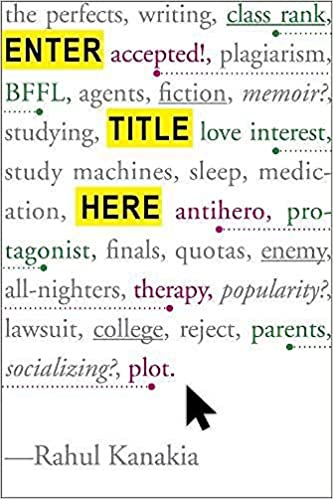 Rahul Kanakia’s pathologically competitive and high-achieving teenager Reshma Kapoor may cause less bloodshed than a favorite literary psyche authors love to explore—the serial killer—but she’s a fresher voice and even more deliciously warped. Early on, Reshma ponders her social life, concluding that “Alexandra is probably the closest thing I have to a friend. Which isn’t that close, because she’s not actually my friend at all: she just sells me Adderall sometimes.” This is exactly who Reshma is. She’s laser-focused on maintaining a perfect GPA in order to be valedictorian so she can get into Stanford. She will stop at nothing to make that happen, and if drugs give her the edge she needs, so be it. It is a joy to watch her, waiting for the train wreck.
Rahul Kanakia’s pathologically competitive and high-achieving teenager Reshma Kapoor may cause less bloodshed than a favorite literary psyche authors love to explore—the serial killer—but she’s a fresher voice and even more deliciously warped. Early on, Reshma ponders her social life, concluding that “Alexandra is probably the closest thing I have to a friend. Which isn’t that close, because she’s not actually my friend at all: she just sells me Adderall sometimes.” This is exactly who Reshma is. She’s laser-focused on maintaining a perfect GPA in order to be valedictorian so she can get into Stanford. She will stop at nothing to make that happen, and if drugs give her the edge she needs, so be it. It is a joy to watch her, waiting for the train wreck.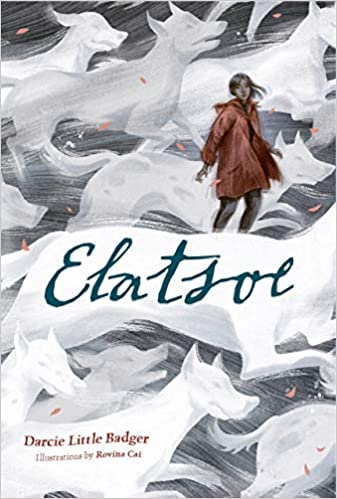 I lucked into finding this book to fulfill the “genre novel by an Indigenous, First Nations, or Native American author” category for the Read Harder challenge (which I am so not going to finish—my reading has slowed so much this year). It definitely fits that bill, as an urban fantasy grounded in Apache and other native cultures. The characters exist in an unusual world where certain aspects of the supernatural are recognized and handled in different ways, but otherwise it is just like modern America, microaggressions and all.
I lucked into finding this book to fulfill the “genre novel by an Indigenous, First Nations, or Native American author” category for the Read Harder challenge (which I am so not going to finish—my reading has slowed so much this year). It definitely fits that bill, as an urban fantasy grounded in Apache and other native cultures. The characters exist in an unusual world where certain aspects of the supernatural are recognized and handled in different ways, but otherwise it is just like modern America, microaggressions and all.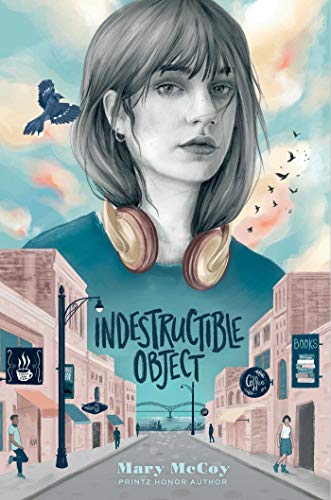 This is my third McCoy book, and one thing I think is cool is that they’ve all been fairly different from each other. Though this one and I, Claudia do share some similarities, in that both protagonists are recording their experiences (I, Claudia in an epistolary fashion, and Indestructible Object as within-the-story podcasts).
This is my third McCoy book, and one thing I think is cool is that they’ve all been fairly different from each other. Though this one and I, Claudia do share some similarities, in that both protagonists are recording their experiences (I, Claudia in an epistolary fashion, and Indestructible Object as within-the-story podcasts).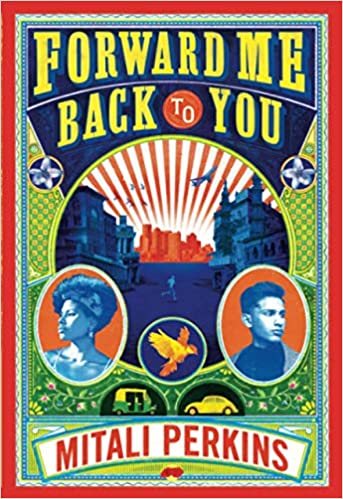 I enjoyed one of Perkins’ earlier books, which I reviewed here. Forward Me Back to You is another winner.
I enjoyed one of Perkins’ earlier books, which I reviewed here. Forward Me Back to You is another winner.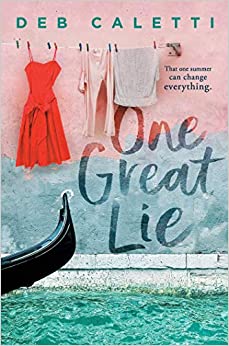 I’ve been in the worst reading slump lately. From early March until a couple weeks ago, I read only one novel, and it was really hard to get through (not the novel’s fault—it was all me). But I’ve been wanting to break out, so I picked up Caletti’s newest. I started it on Friday and was so sucked in that I finished it the next day. It may have broken the slump (I’m hoping), as I’ve read another book since then, too.
I’ve been in the worst reading slump lately. From early March until a couple weeks ago, I read only one novel, and it was really hard to get through (not the novel’s fault—it was all me). But I’ve been wanting to break out, so I picked up Caletti’s newest. I started it on Friday and was so sucked in that I finished it the next day. It may have broken the slump (I’m hoping), as I’ve read another book since then, too.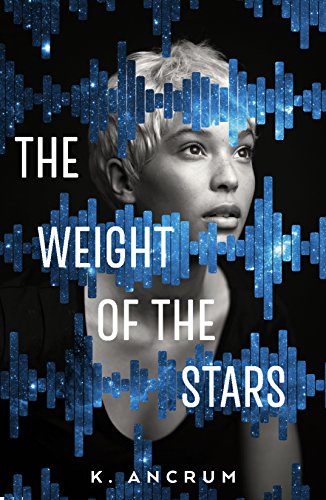 The premise of this quiet book is really interesting. A couple of decades earlier, a private space company send a bunch of young women on a one-way trip out of the solar system. While I do not in any way see the appeal of this, it is an interesting concept and I’m sure there are people who would sign up.
The premise of this quiet book is really interesting. A couple of decades earlier, a private space company send a bunch of young women on a one-way trip out of the solar system. While I do not in any way see the appeal of this, it is an interesting concept and I’m sure there are people who would sign up.